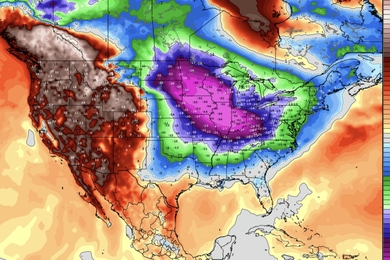MIT Medical’s associate medical director, Howard Heller, has confirmed that an MIT graduate student was diagnosed with measles on Feb. 4. The student lives in graduate student housing on campus and is believed to have contracted the illness during a recent trip to South America.
While measles is an extremely contagious and potentially serious illness, the threat to the MIT community is extremely low, Heller emphasizes. “This country has not seen a measles outbreak on a college campus in decades,” he notes, “and MIT, like most universities, has a thoroughly vaccinated student population. In our community, those at greatest risk would be family members of MIT students from countries where measles immunization is not routine and infants who have not yet been vaccinated.”
Measles, a viral, respiratory illness that is also called rubeola, typically begins with symptoms that mimic those of the common cold — mild to moderate fever, sore throat, cough, and runny nose. But within a few days, tiny white spots may appear inside the mouth, followed by a reddish rash that starts at the hairline and spreads down the body. The body rash is often accompanied by high fever.
People are considered to be immune to measles if they have had two doses of the vaccine or were born in the United States before 1957. MIT Medical has vaccinations available for those who have not been adequately vaccinated in the past and can also test the immunity levels of individuals who are unsure about their vaccination history. To schedule measles vaccinations, members of the MIT community may call their primary care providers directly or MIT Medical’s Health Screening department, at 617-253-1777.
More information about measles is available on the Centers for Disease Control and Prevention (CDC) website.
While measles is an extremely contagious and potentially serious illness, the threat to the MIT community is extremely low, Heller emphasizes. “This country has not seen a measles outbreak on a college campus in decades,” he notes, “and MIT, like most universities, has a thoroughly vaccinated student population. In our community, those at greatest risk would be family members of MIT students from countries where measles immunization is not routine and infants who have not yet been vaccinated.”
Measles, a viral, respiratory illness that is also called rubeola, typically begins with symptoms that mimic those of the common cold — mild to moderate fever, sore throat, cough, and runny nose. But within a few days, tiny white spots may appear inside the mouth, followed by a reddish rash that starts at the hairline and spreads down the body. The body rash is often accompanied by high fever.
People are considered to be immune to measles if they have had two doses of the vaccine or were born in the United States before 1957. MIT Medical has vaccinations available for those who have not been adequately vaccinated in the past and can also test the immunity levels of individuals who are unsure about their vaccination history. To schedule measles vaccinations, members of the MIT community may call their primary care providers directly or MIT Medical’s Health Screening department, at 617-253-1777.
More information about measles is available on the Centers for Disease Control and Prevention (CDC) website.





